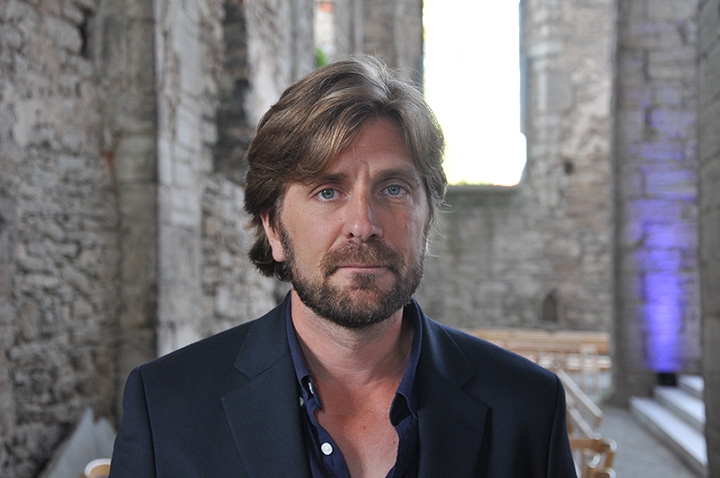Minimum query is 3 letters.
DIRECTOR’S STATEMENT FORCE MAJEURE
FORCE MAJEURE has its origins in a question I have long been fascinated by: How do human beings react in sudden and unexpected situations such as a catastrophe? The story concerns some holidaymakers who witness an avalanche and run away, terrified. When it is over, they are ashamed because they have succumbed to their primal fear. This particular story came about from an anecdote that I found impossible to forget. Some years ago, a Swedish couple, friends of mine, were on holiday in Latin America when suddenly, out of nowhere, gunmen appeared and opened fire; the husband instinctively ran for cover, leaving his wife unprotected. Back in Sweden, she could not stop, after a glass of wine or two, telling the story over and over again...
My imagination fired, I began to research other true stories like this one - stories of distress and emergency, of passengers during the sinking of ships, of tourists stricken by tsunamis or held hostage by hijackers. In such extreme situations, people can react in completely unexpected and exceedingly selfish ways. It appears – there are scientific studies on the subject - that in the aftermath of a catastrophe, a hijack attack or a shipwreck, a large number of the survivors divorce. It also appears that, in many cases, men do not act according to the expected codes of chivalry. In life or death situations, when ones very own survival is at stake, it seems that men are even more likely to run away and save themselves than women… Which may be the chief cause for those divorces. This made me want to talk about the received notion that a man is supposed to be the protector of his wife and family, the societal code that says he must not step back in the face of danger.
From here, I arrived at the concept of an existential drama in a ski resort - something that seems to me awfully appealing. Ski holidays contribute to the feeling of having full control over one’s own life. Les Arcs, where FORCE MAJEURE was shot, was built in the 1950s, like most European ski resorts, to receive middle-class families consisting of a (sometimes working) mother, an executive father and two kids. The father is supposed to muck in, the fully equipped open-plan kitchens in the ski apartments giving the mother a chance to do things other than cooking, for instance to ski with her family, or to relax. Ski resorts are meant to be cozy, as the advertising shows: we can imagine the woman relaxing, her husband playing with the kids. Vacation is a time when the Western middle-class father “pays back” the family for his absence. It is a time he can devote to his children and take care of them. But in FORCE MAJEURE ‘Civilized Man’ is confronted by ‘Nature’. The characters experience this drama, and the father, Tomas, must face the savage part of himself, because his instincts lead him to save himself and to abandon his children and his wife. He must face the reality that he too is subject to the forces of Nature, and that he has failed to conceal his most basic human impulse, the survival instinct.
After the panic of the avalanche, our characters manage to raise a nervous smile, they get back to their feet, brush off the snow… But although no physical damage has been done, the family bonds have been shaken to their core and slowly they will begin to ask themselves questions about the roles they believed they played so well, they will have to deal with this new image of their father, Tomas, who did not act as was expected. Tomas himself must also reconcile his actions with his self-image, and his wife Ebba must admit that her husband and the father of her children abandoned them at the moment when they needed him most.
This particular situation illustrates the wider existence of specific mutual expectations between the members of a family, even if these assumptions are seldom voiced. Each person has a role to mountains and portions of the hotel complex to create a truly sensational feeling. Of course, as was the case in my previous films, digital work will remain completely invisible, leaving audiences with no idea that the environments have been touched.
We shot the film with anamorphic lenses, using the ARRI Alexa camera, after DOP Fredrik Wenzel and I had made a variety of tests. Anamorphic lenses lend a more cinematic feel, a truly epic sense of framing in the mountain environment. They also bring us closer to the characters than in my previous feature film PLAY; you are able to get a close up shot whilst still having some background to work with.
The structure of the film follows a regular ski week schedule – first day, second day, third day … until the family goes back to the airport on the fifth day. The family structure will be developed on the first day: the gorgeous setting, the mountains, the great weather... The incident with the avalanche will then occur on the second day. On the third, fourth and fifth days, we see how the family is trying to handle the consequences of the avalanche... This 5-day structure will allow us to repeat several elements of each day’s routine – daily breakfast, brushing teeth at night – in order to follow the evolution of the family’s behavior before and after the incident.
In FORCE MAJEURE we are going to follow Ebba and Tomas in their journey, see the evolution of their feelings and their perception of events, see them struggle to get back together, share their sorrows and their hopes. The appeal for the audience is much more connected to emotion than in my previous, more conceptual, films. In the final scene, as our main characters return to the airport by bus, the tourists find themselves standing on the side of the road thanks in part to the bus driver’s recklessness, thanks also to letting their fear get the better of them. And now they walk down the mountain on foot. When they then see the bus drive off safely, a slight sense of collective shame arises, yet, as they walk, this slowly transforms into a feeling of solidarity. Their social masks have crumbled away and they actually share a strong moment together.
(Source: Coproduction Office Cannes IFF Press Book)
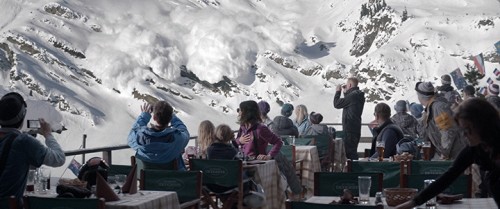 FORCE MAJEURE (Turist, 2014)
An avalanche in the French Alps sends a father scurrying for his life, leaving behind his panicked wife and children, in Östlund’s examination of the conflict between social role and survival instinct.
FORCE MAJEURE (Turist, 2014)
An avalanche in the French Alps sends a father scurrying for his life, leaving behind his panicked wife and children, in Östlund’s examination of the conflict between social role and survival instinct.
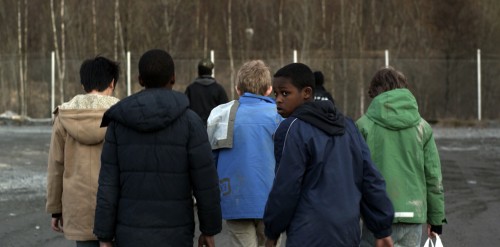 PLAY (2011)
Unabashedly impolite, Östlund’s record of racially charged harassment and societal paralysis offers food for thought and fuel for fury.
PLAY (2011)
Unabashedly impolite, Östlund’s record of racially charged harassment and societal paralysis offers food for thought and fuel for fury.
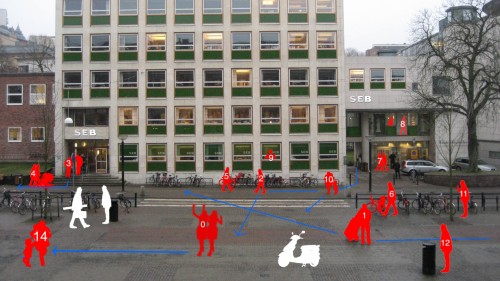 INCIDENT BY A BANK (Händelse vid bank, 2009)
Based on an actual account of a bank robbery witnessed by two bystanders across the street, Östlund’s concise study of surveillance may remind some viewers of Michael Haneke’s Caché.
INCIDENT BY A BANK (Händelse vid bank, 2009)
Based on an actual account of a bank robbery witnessed by two bystanders across the street, Östlund’s concise study of surveillance may remind some viewers of Michael Haneke’s Caché.
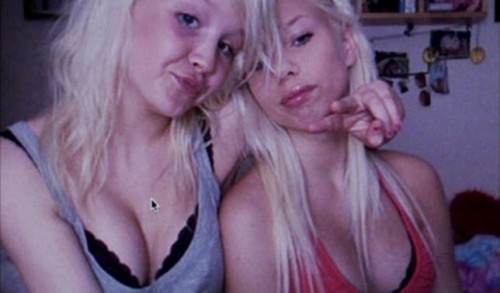 INVOLUNTARY (De ofrivilliga, 2008)
Described by Östlund as “a tragic comedy or a comic tragedy,” the director’s second feature draws uneasy laughter through five examinations of bourgeois group dynamics.
INVOLUNTARY (De ofrivilliga, 2008)
Described by Östlund as “a tragic comedy or a comic tragedy,” the director’s second feature draws uneasy laughter through five examinations of bourgeois group dynamics.
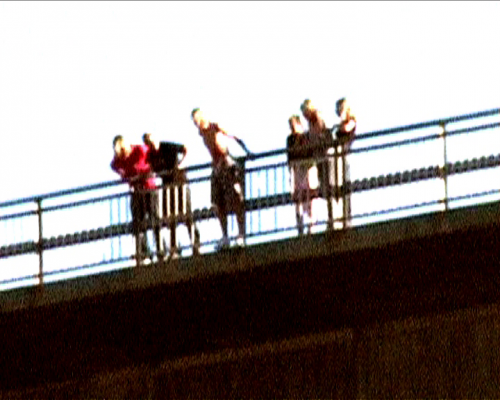 AUTOBIOGRAPHICAL SCENE NUMBER 6882 (Scen nr: 6882 ur mitt liv, 2005)
A young man has second thoughts about his boast to jump from a bridge in this penetrating critique of peer pressure and the fragile male psyche.
AUTOBIOGRAPHICAL SCENE NUMBER 6882 (Scen nr: 6882 ur mitt liv, 2005)
A young man has second thoughts about his boast to jump from a bridge in this penetrating critique of peer pressure and the fragile male psyche.
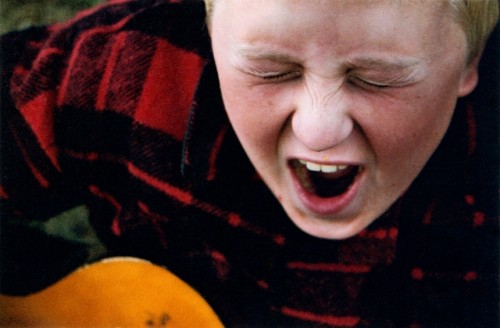 GITARRMONGOT (2004)
Östlund’s mostly nonprofessional cast brings a documentary quality to this compassionate, humorous portrait of outsiders and nonconformists, focusing in particular on the titular musician, a young man facing dire obstacles in life.
GITARRMONGOT (2004)
Östlund’s mostly nonprofessional cast brings a documentary quality to this compassionate, humorous portrait of outsiders and nonconformists, focusing in particular on the titular musician, a young man facing dire obstacles in life.
COMEBACK COMPANY
For press and booking inquiries:
To sign-up for our newsletter
email us with "newsletter" in the
subject line:
Comeback Company 2014
Design by Parallel Practice
© All rights reserved.
